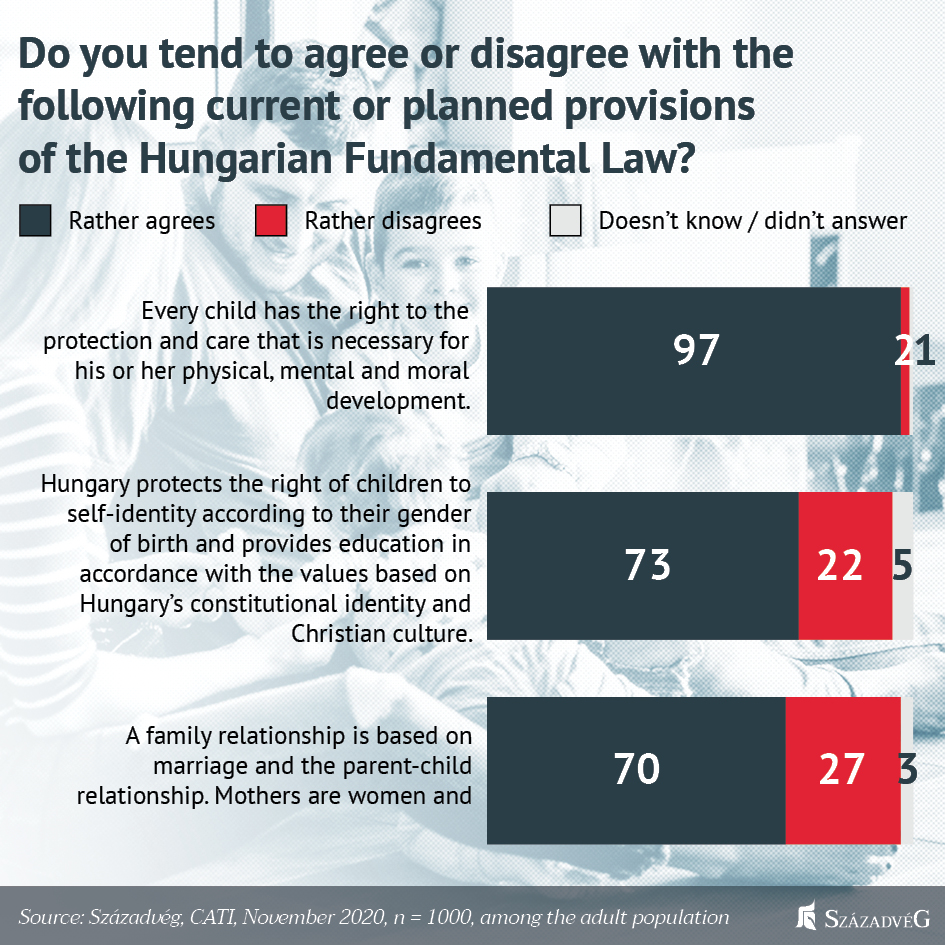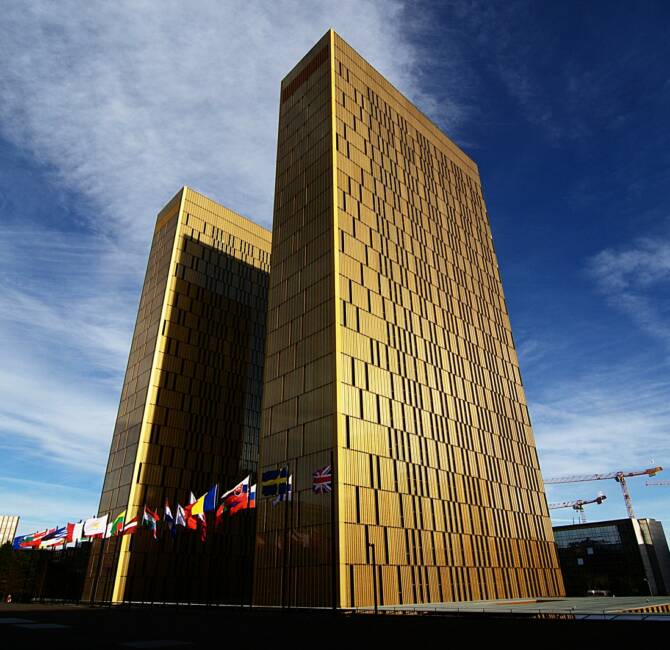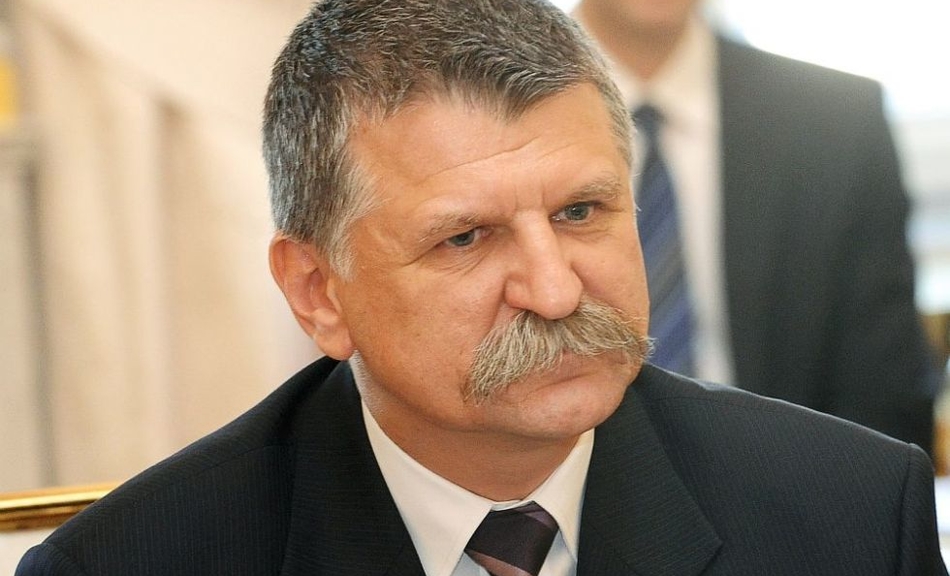Hungary – The following study and article have been conducted and written by the Századvég Foundation, close to Fidesz.
In a health and economic emergency caused by the coronavirus, the decision-making bodies in Brussels, overriding the agreement reached at the extraordinary meeting of the European Council in July, have agreed to set up a mechanism that would require that EU payments to Member States are subject to political and ideological conditions, including the share of the fund aiming to repair the economic damage caused by the pandemic. There is a danger that, through the planned mechanism, Brussels will make the disbursement of EU funds legally due to Member States conditional on the fulfilment of criteria that deeply divide European societies and are on the political agenda of the radical left, such as unrestricted migration, the quota system and the uncritical acceptance of LGBTQ requirements. In view of this, Hungary and Poland exercised a political veto on the proposal. Századvég Foundation examined the Hungarian population’s position on the subject.
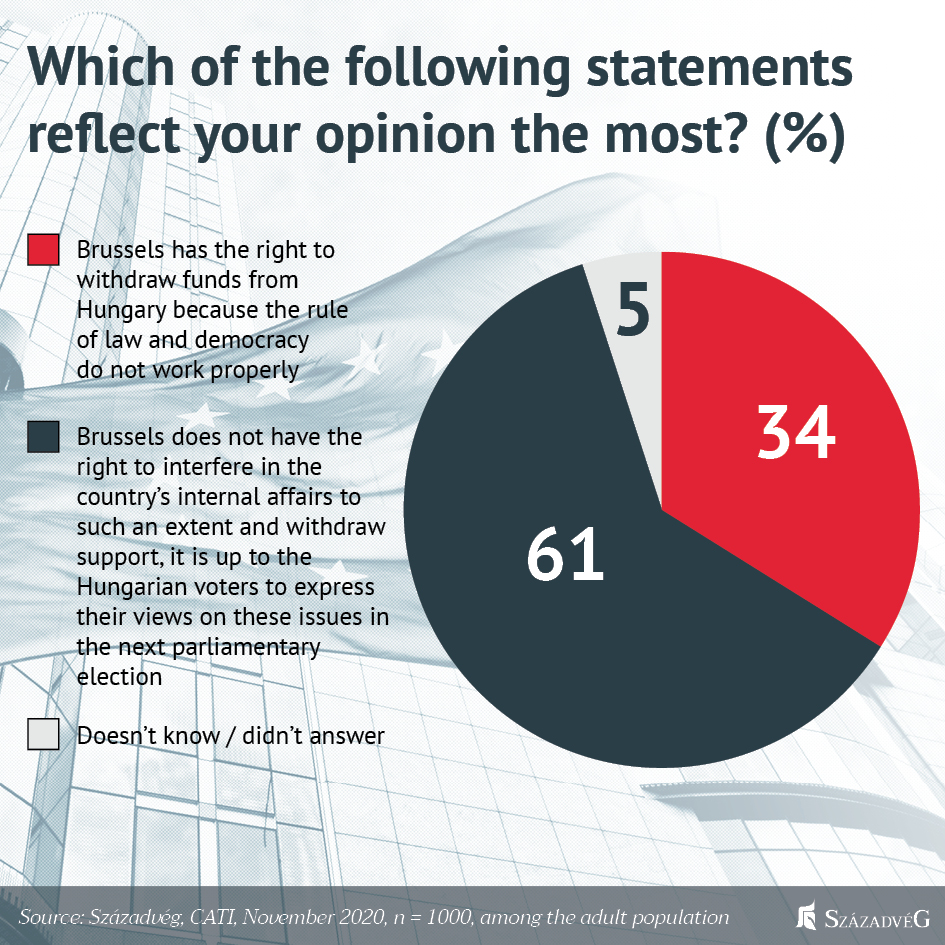
According to the research, more than three-quarters (78 percent) of Hungarians have heard that Brussels would make the payment of EU grants conditional on the fulfilment of the “rule of law criteria”, in response to which Hungary and Poland had a political veto on the EU budget package, while 21 percent have not heard about it. The mechanism proposed by Brussels raises the issue of respect for member state sovereignty. According to the survey, 61 percent of the respondents believe that the European Union does not have the right to intervene in the country’s internal affairs in this way, as it is the voters who should express their views on the rule of law issue in parliamentary elections. In contrast, 34 percent agree with Brussels’ efforts on the withdrawal of funding.
Given the spread of the second wave of the coronavirus pandemic in Europe, the timing of the Brussels proposal also raises questions. The research points out that 81 percent of the respondents consider it incorrect that the European Union would make financial assistance conditional in a pandemic situation, but 15 percent would not object. It can also be stated that almost two-thirds of the respondents (64 percent) believe that Brussels should not have a say in how Hungarians want to live, while 30 percent of them consider EU intervention to be justified. It is also important to note that according to 63 percent of the respondents, Brussels should not apply a double standard and Hungary should not be deprived of EU funds, while 29 percent took a different position.
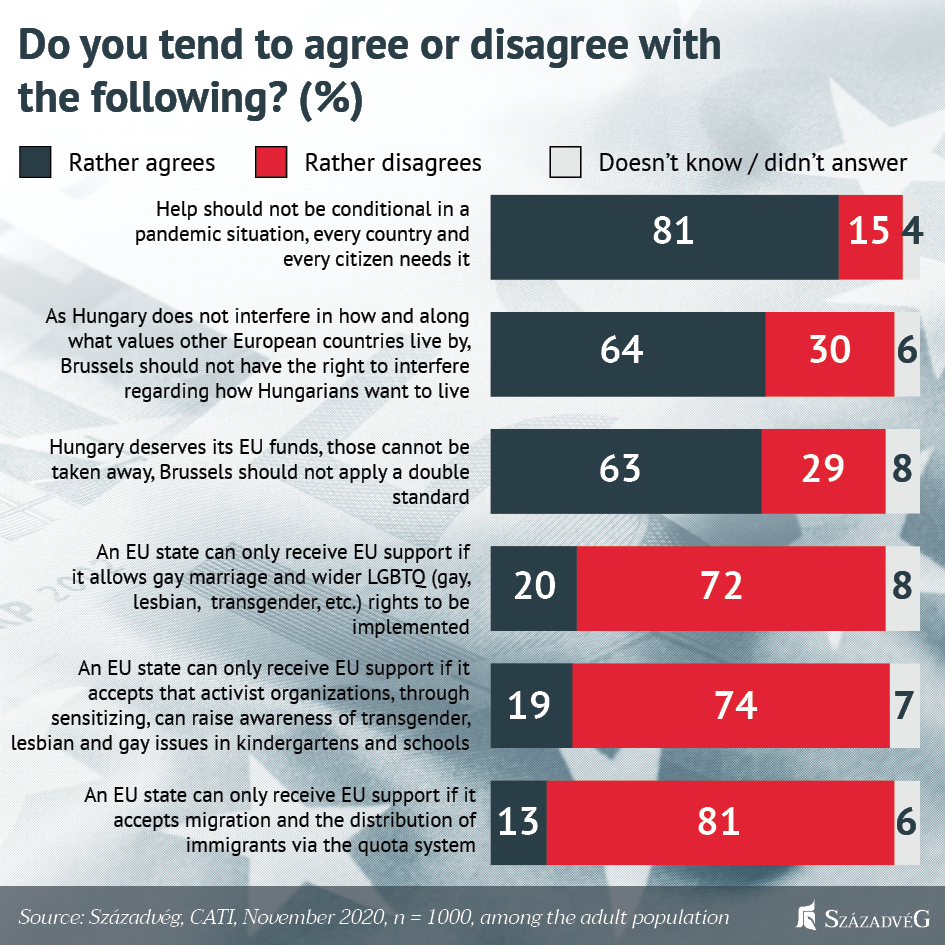
The planned rule of law mechanism carries the risk that Brussels will require Hungary to take measures that do not correspond to the values of the majority of Hungarian citizens (including kindergarten and school sensitizing related to LGBTQ and transgender lifestyles, and the distribution of illegal migrants by quota). The survey found that 72 percent of those surveyed disagree that the payment of EU funds should be subject to a wider enforcement of LGBTQ and transgender rights, while 20 percent would support it. In this context, almost three-quarters of Hungarians (74 percent) oppose that a member state should have access to EU funding only if it accepts that activist organizations organize LGBTQ and transgender sensitizing projects in kindergartens and schools, while 19 percent would not object to this. In addition, 81 percent of the respondents disagree with making the disbursement of EU funds conditional on the distribution of illegal immigrants by quota, while 13 percent would support this scheme.
The research also covered the assessment of the proposed amendment to the Fundamental Law aimed at protecting the traditional family model, given that if adopted, Hungary might become the target of further pressure attempts in Brussels. According to the survey, 97 percent of the respondents agree with the effective provision of the Fundamental Law that all children have the right to the protection and care necessary for their proper physical, mental and moral development, while 2 percent expressed a different opinion. In addition, almost three-quarters of the respondents (73 percent) support that it should become part of the Fundamental Law to protect the child’s right to self-identity according to his or her gender by birth and to provide education in accordance with the values based on Hungary’s constitutional identity and Christian culture, while 22 percent oppose the planned amendment.
Similarly, 70 percent of those surveyed agree that family relationships are based on marriage and the parent-child relationship, and that mothers are women and fathers are men, while 27 percent have different views. In light of all this, it can be stated that the majority of Hungarians are committed to raising children according to traditional values and the traditional family model.
